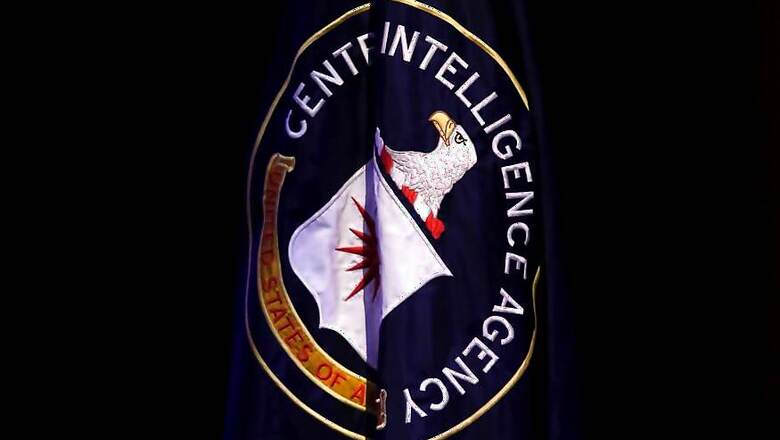
views
Washington: Shortly after 9/11, the CIA considered using a drug it thought might work like a truth serum and force terror suspects to give up information about potential attacks.
After months of research, the agency decided that a drug called Versed, a sedative often prescribed to reduce anxiety, was "possibly worth a try." But in the end, the CIA decided not to ask government lawyers to approve its use.
The existence of the drug research program dubbed "Project Medication" is disclosed in a once-classified report that was provided to the American Civil Liberties Union (ACLU) under a judge's order and was released by the organization Tuesday.
The 90-page CIA report, which was provided in advance to The Associated Press, is a window into the internal struggle that medical personnel working in the agency's detention and harsh interrogation program faced in reconciling their professional ethics with the chance to save lives by preventing future attacks.
"This document tells an essential part of the story of how it was that the CIA came to torture prisoners against the law and helps prevent it from happening again," said ACLU attorney Dror Ladin.
Between 2002 and 2007, CIA doctors, psychologists, physician assistants and nurses were directly involved in the interrogation program, the report said. They evaluated, monitored and cared for 97 detainees in 10 secret CIA facilities abroad and accompanied detainees on more than 100 flights.
The CIA ultimately decided against asking the Justice Department to approve drug-assisted interrogations, sparing CIA doctors "some significant ethical concerns," the report said.
It had taken months for the Justice Department to sign off on brutal interrogation tactics, including sleep deprivation, confinement in small spaces and the simulated drowning technique known as waterboarding. The CIA's counterterrorism team "did not want to raise another issue with the Department of Justice," the report said.
Before settling on Versed, the report said researchers studied records of old Soviet drug experiments as well as the CIA's discredited MK-Ultra program from the 1950s and 1960s that involved human experimentation with LSD and other mind-altering drugs on unwitting individuals as part of a long search for some form of truth serum.
These experiments were widely criticized and, even today, some experts doubt an effective substance exists.
"But decades later, the agency was considering experimenting on humans again to test pseudo-scientific theories of learned helplessness on its prisoners," Ladin said.
Versed is a brand name for the sedative midazolam, used since the late 1970s and today sold commonly as a generic.
It causes drowsiness and relieves anxiety and agitation. It also can temporarily impair memory, and often is used for minor surgery or medical procedures such as colonoscopies that require sedation but not full-blown anesthesia. It's in a class of anti-anxiety medications known as benzodiazepines that work by affecting a brain chemical that calms the activity of nerve cells.
"Versed was considered possibly worth a trial if unequivocal legal sanction first were obtained," the report said.
"There were at least two legal obstacles: a prohibition against medical experimentation on prisoners and a ban on interrogational use of 'mind-altering drugs' or those which 'profoundly altered the senses.'"
Those questions became moot after the CIA decided against asking the Justice Department to give it a green light. "At the beginning of 2003, the Office of Medical Services' review, informally termed 'Project Medication' was shelved, never to be reactivated," the report said.
The CIA had no comment on the report's release, but government lawyers emphasized in a court filing in the case early last year that the report, expressly marked "draft," was just one agency officer's impressions of the detention and interrogation program. The document is not the CIA's or the Office of Medical Service's "final official history, or assessment, of the program," the lawyers wrote.
The ACLU spent more than two years in court trying to get the report released. In September 2017, a federal judge in New York ordered the CIA to release it. Government lawyers tried three more times to keep information contained in the report under wraps, but the ACLU received the bulk of the report in August. The government is still fighting to keep portions secret. They are to file briefs in a federal appeals court in New York on Wednesday, arguing that the judge ordered too much released.




















Comments
0 comment